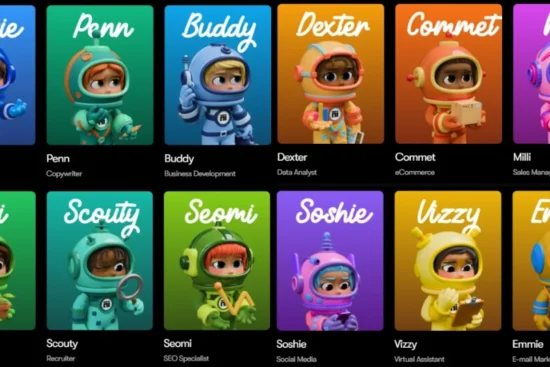
The landscape of scientific discovery has undergone a profound transformation with the advent of artificial intelligence (AI). Once a domain governed solely by human ingenuity and traditional methodologies, scientific research now thrives on AI’s computational power, pattern recognition, and predictive capabilities. From drug development to understanding the cosmos, AI is not just an aid but a catalyst for breakthroughs, fundamentally altering how discoveries are made.
This blog delves into the pivotal role of AI in science, the ways it is revolutionizing research, and the future possibilities it unveils.
AI’s Role in Modern Science
AI integrates seamlessly with the scientific method—hypothesis generation, experimentation, observation, and conclusion. By analyzing massive datasets, AI can identify patterns and correlations that may elude human researchers. Additionally, its ability to predict outcomes and simulate experiments saves both time and resources.
Some of the key contributions of AI to science include:
- Data Analysis: AI systems process vast volumes of data at speeds unattainable by humans, allowing researchers to focus on high-level insights.
- Automation of Repetitive Tasks: Laboratory robots powered by AI streamline tasks like data entry and sample analysis, improving efficiency.
- Model Building: AI aids in constructing models for complex phenomena, from climate systems to biological processes.
- Hypothesis Generation: AI-driven algorithms suggest new avenues of exploration, often yielding unconventional and groundbreaking insights.
Applications of AI in Various Scientific Domains
1. Medicine and Healthcare
AI is revolutionizing medicine with its ability to process vast datasets of clinical trials, patient records, and genomic sequences.
- Drug Discovery: Developing new drugs traditionally takes 10–15 years and billions of dollars. AI accelerates this process by identifying potential compounds and predicting their efficacy through molecular simulations.
- Diagnostics: AI-powered diagnostic tools detect diseases like cancer, Alzheimer’s, and cardiovascular conditions at early stages with unprecedented accuracy.
- Personalized Medicine: AI analyzes genetic data to recommend tailored treatments, improving patient outcomes.
2. Physics and Astronomy
Understanding the universe requires managing enormous datasets from telescopes, sensors, and experiments.
- Astrophysics: AI processes data from observatories, identifying phenomena like exoplanets and gravitational waves that traditional methods might miss.
- Particle Physics: In particle accelerators, AI identifies patterns among trillions of collisions, offering insights into fundamental particles and forces.
3. Climate Science
AI is indispensable for modeling and mitigating climate change.
- Climate Models: AI enhances the accuracy of predictive models, offering insights into temperature changes, sea level rise, and extreme weather events.
- Energy Solutions: AI optimizes renewable energy systems, from wind farms to smart grids, making them more efficient and scalable.
4. Biology and Ecology
AI helps uncover insights into ecosystems, evolution, and biological systems.
- Genomics: AI tools analyze DNA sequences, shedding light on genetic disorders, evolution, and biodiversity.
- Conservation: AI-powered drones and sensors monitor endangered species and combat deforestation, poaching, and habitat destruction.
How AI is Changing Research Methodologies
Traditional research relied heavily on trial-and-error approaches. AI brings precision and predictive power to the process.
- Simulations Over Physical Trials: AI can simulate chemical reactions, astronomical events, or ecological changes, reducing the need for costly and time-consuming physical experiments.
- Enhanced Collaboration: AI platforms enable global collaboration by pooling data and resources, breaking down geographical barriers in research.
- Real-Time Insights: AI processes real-time data, helping researchers respond dynamically to evolving conditions, such as disease outbreaks or environmental crises.
The Ethical and Practical Challenges
Despite its promise, the use of AI in science presents challenges:
- Bias in Data: AI systems are only as unbiased as the data they are trained on. Poorly curated datasets can lead to skewed results.
- Interpretability: AI models often function as “black boxes,” producing results without clear explanations of how they arrived at them.
- Resource Accessibility: Developing and maintaining AI systems requires significant financial and computational resources, creating disparities between institutions.
- Ethics: The use of AI in areas like genetic engineering or surveillance poses ethical dilemmas that must be addressed through regulation.
Case Studies of AI in Action
AlphaFold: Revolutionizing Protein Folding
The protein-folding problem—a grand challenge in biology—was solved by DeepMind’s AlphaFold. This AI system predicts protein structures with remarkable accuracy, paving the way for advances in drug development and disease research.
CRISPR and AI:
AI tools enhance the precision of CRISPR gene-editing technology, identifying target genes and predicting off-target effects. This integration is crucial for developing therapies for genetic disorders.
AI in Space Exploration
NASA employs AI for tasks like analyzing data from Mars rovers, identifying potential sites for exploration, and managing spacecraft systems autonomously.
The Future of AI-Driven Scientific Discovery
As AI evolves, its potential in science is limitless. Future developments may include:
- Quantum AI: Combining quantum computing with AI will exponentially enhance data analysis and simulation capabilities.
- Autonomous Research Systems: Fully autonomous labs could design and conduct experiments without human intervention.
- Interdisciplinary Breakthroughs: AI’s ability to integrate knowledge across disciplines will lead to entirely new fields of study.
Conclusion
AI is not merely a tool for scientific discovery; it is a transformative force reshaping the very foundation of research. From accelerating drug development to unraveling cosmic mysteries, AI is enabling breakthroughs that were once the stuff of science fiction.
While challenges remain, the collaborative efforts of scientists, technologists, and ethicists will ensure that AI’s potential is harnessed responsibly and inclusively. As we stand on the cusp of a new era in science, AI is poised to accelerate humanity’s quest for knowledge, opening doors to discoveries we can only begin to imagine.












